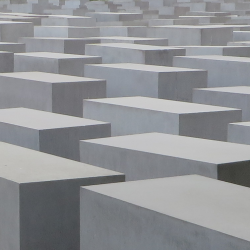
Certainly the great despots of history were very persuasive. To maintain an iron grip, even using terror tactics as with say Josef Stalin, nevertheless requires a phalanx of lieutenants who are as committed as their leader to the same principles.
The tribal nature of humankind is such that many will close their eyes to the immoral aspects and follow the assertions of leaders. “This is the truth, you will follow” – the dictum of Big Brother – is a compelling call for the weak needing a vehicle to increase personal strength.
Whilst such leaders have held nations in their thrall, few would argue their reigns have led to a higher level of civilisation for their citizens. There has also been another type of leader, not of nations but of ideologies, those who have claimed that their certainties are ordained by their deities – not the likes of Jesus or Mohammed, who were true holy men, rather the leaders of organisations from the Spanish Inquisition to today’s Islamic State with its appalling ideology and atrocities. The number and suffering of victims of their actions “in the name of God” are just as repugnant to modern, moderate Christians or Moslems as those of cruel political or criminal leaders.
This attitude of “I know I am right” extends to lesser evil leaders, such as Charles Manson or Jim Jones, who persuaded 913 followers to kill themselves in Jonestown in 1978, and all the way down to bullying spouses and domineering bosses on an every day, everywhere basis. We all know of someone who follows another even though their actions are immoral. This is after all how lynch mobs work.
Let me propose an antidote to the poison of such people. I offer the following observation:
The most civilising influence on humanity is DOUBT.
And by corollary, the most degrading, the most barbaric, the least couth is Certainty.
Let us all forswear that which is black and white, and embrace the grey areas of all forms of behaviour and action. One expression of doubt is the acceptance of a plurality of views, and the accommodation of compromise and respect for others.
Consider those leaders whom we do widely revere.
On a religious level, the great leaders such as Jesus, Mohammed and Buddha were not afraid to express doubt and to teach tolerance, even whilst advocating the one true certainty of the love of God. Many of the better political leaders of the past – for example, Ghandi, Churchill, Mandela – have admitted doubts, sought the views of others, and accepted that negotiated inclusive policies were appropriate and indeed desirable.
We shouldn’t confuse confidence with certainty. Political and business people alike will assert confidence that their policies or products are the best, yet if they are credible they will also admit that this is their opinion, their interpretation of the situation, and that doubt remains and other solutions are credible even if less preferable.
Nor should we consider indecisiveness being as desirable as doubt. Decisions are all about reasonable judgements in an uncertain world, extrapolating a binary yes/no position from an analogue landscape. I have no difficulty in deciding upon chicken from the menu, despite real uncertainty as to whether the fish might be better. The wise man however does not make irreversible decisions – if the chicken looks dodgy when it arrives, I am prepared to send it back.
Now I’m not talking about provable certainties. Clearly there are some certainties in life – the sun will come up tomorrow (although it may be obscured by cloud); if I stick a pin in my finger it will hurt (unless I take an anaesthetic); and water will boil in a kettle at 100°C (unless I am high above sea level). But where it is not scientifically or evidentially fact, we should not make out that it is.
Does the Turin Shroud show an image of the body of Christ? It certainly shows an image which could be that of Christ, but there is no incontrovertible proof either that it is, nor indeed that it isn’t, and whilst we might aver that it is likely/not likely according to our interpretation of available facts, we cannot be certain.
Did Lee Harvey Oswald kill President Kennedy? The available information suggests it is probable, but there is sufficient uncertainty in the assembled evidence to suggest some doubt. The police spokesman in a TV documentary who said he had ‘no doubt’ that Oswald was the assassin was, I submit, demonstrating why proof of guilt cannot be left to the police but requires a more sceptical judiciary.
Did aliens land at Roswell? This could be an explanation for some of the testimonies of witnesses, and the lack of co-operation of the military authorities might be suspicious (although perhaps unsurprising); but those who state that they are convinced of it deserve our mistrust.
At a more local level, I would be surprised if anyone reading this doesn’t know of someone who is obsessively convinced of some trivial assumed reality. A friend of my mother, for example, once read in one of the more dubious magazines that plastic drink bottles can cause cancer from leaching plastics into the drink, and became utterly obsessed with avoiding any plastic containers, way beyond what any level of risk might be.
So let us embrace doubt. Avoid the bee in the bonnet about unprovable hypotheses. Reject the lynch mob attitude of “there’s a suspicion, that proves they are guilty”. Let us use “I am sure” to mean “it seems to me most likely”.
I am sure that’s the best way.
